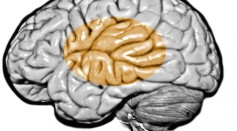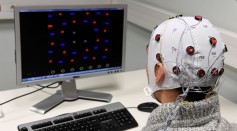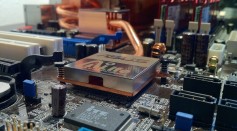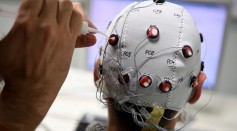computer

Real-Life Matrix? Physicist Claims We Could Be Characters in Advanced Virtual World As Universe Resembles Computer Processes
Smartest Man Who Ever Lived: John von Neumann's Dual Legacy From the Atomic Bomb to the Computer Revolution

Quantum Material With Non-Local Interaction Simulates Brain Function, Holds Key to Creating Efficient Human-Like Computers

Distinct Brain Signals Picked Up For the First Time; Findings Hint That Human Neurons Are More Powerful in Computing Than Previously Thought

Organoid Intelligence Computer That Uses Lab-Grown Organs Could Be Developed Soon, Scientists Say

Can Artificial Intelligence Revolutionize the Future of Dating? ChatGPT, the Computer Matchmaker, Weighs In

Brain-computer Interface Accurately Translates Brainwaves Into Letters, Helping Paralyzed Patients to Spell Words

Matrix Multiplication Made Faster with AI's Discovery of Novel Algorithms for Better Smartphone Images, Computer Graphics

Watching TV Increases Dementia Risk by 20% But Using Computers May Protect the Brain Against It

Spaceflight Computing: NASA Working With Microchip Technology Inc. in Developing New Computer for Space Exploration

Brain-Computer Interface That Can Be Controlled Hands-Free May Benefit People With Paralysis

Neuroplasticity-Inspired Novel Computing Device Can Reconfigure, Store Memories Like Human Brain

Man Whose Voice Was Silenced for Years Can Communicate Now, Thanks to His Brain's Electrical Impulses
Brain-To-Text Technology Enables Paralyzed Man To Turn Imagined Handwriting Into Words on a Screen
Most Popular

How Technology Is Changing the Real Estate Industry?

How a Plant-Based Diet Can Protect Against Breast Cancer: Insights from Nutrition Research

Study Reveals High Turnover in Scientific Research Careers: What This Means for Future Scientists

Why It's So Difficult to Lose Weight: The Biological Explanation Behind Obesity





